I had the pleasure of sitting down with Sam Dettmann, a friend of mine since college. Sam is currently running for a Village Trustee position in his town of Whitefish Bay, Wisconsin. While many of my previous blog posts had a tangential relationship to the greater San Diego area, this one takes a peek behind the curtain of a close-knit southeastern Wisconsin community, and the high-level resilience insights we can glean from someone involved in the local political sphere there. It’s a slightly different angle than normal, but one that I found interesting – and still highly relevant.
We covered a number of topics, ranging from what makes a resilient community, how a town’s design can contribute to its character, how to network, meet people, and the importance of listening, and the lost art of civility. It was a nice surprise – this catch-up with my friend turned into a really revealing discussion on the communities and institutions that we all make up, and the role that we play in strengthening them.
If you’re in the community of Whitefish Bay, I hope you choose Sam on April 2nd! And if you’re not, I hope that you enjoy this discussion on what makes a local community strong.
To learn more or reach out to Sam, you can contact him here.
I’m primarily interested in the concept of resilience – whether personal, communal, or societal. What does the concept of resilience mean to you?
That’s a good, tough question.
I think for me it’s the idea of being comfortable with who you are, even if that sometimes means being okay with not being liked or not being able to please everyone. As a candidate and a person, I am learning this as I go, and it’s a work in progress every day. In the campaign, I try to keep things even and I am always open to collaboration with anyone who reaches out to me, but it’s still important to realize that you’re never going to be able to please everyone. The way that I work on that and on being comfortable with it really starts with making sure that I have strong connections, with my family and my personal network, who I can rely on to help provide guidance and grounding.
Being comfortable with who you are, while not necessarily being liked. Is that something that you started working on as a result of this campaign? Or is it something you’ve been working on longer?
Something I’m always working on is my sense of self. What do I bring to the table, and how can I do it in a way that makes an impact?
The campaign has been a great learning experience for this. It’s a lot of work even just running in a local race for a smaller town, but you learn a lot about yourself, what you do well, what you can work on, what your strengths and weaknesses are. And then you also get much more connected to your community and the people in it. If you’re reading this and interested in running for something, I think you should do it but be prepared to be challenged. At times, a campaign can also be a bit lonely, which is a strange paradox as running for office in an inherently connective experience but there’s an element of self-reliance that can be humbling at times.
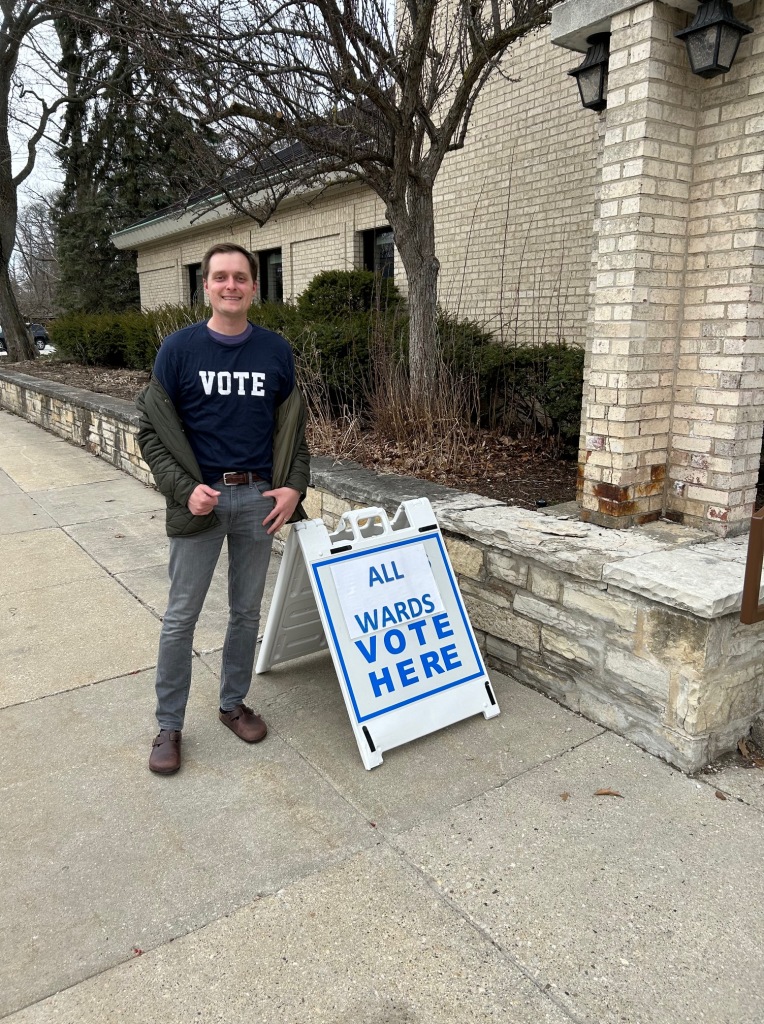
What originally attracted you to the Whitefish Bay community? Would you classify it as a resilient community?
My wife actually grew up here, so we were familiar with it. I grew up nearby in the Milwaukee area, so I also knew the area but when we were looking for somewhere to set down roots we both knew Whitefish Bay was the right place.
One of the things I like about living here is the nice blend of urban and suburban feel. We live about ten minutes from downtown Milwaukee, and can get there from our house by bike on well-maintained trails, but Whitefish Bay maintains this great neighborhood feel. It’s the second most densely populated community in Wisconsin, so you know your neighbors and it’s walkable.
We also have phenomenal schools and phenomenal services. Those were big attractors for us, and that’s something I want to do my part to maintain over time. I have two kids, one who just started in the school system, and I want to make sure that I’m doing what I can to help build the community for them and the future.
The other piece that’s really cool about Whitefish Bay is the geography, which is really unique. You are never far from Lake Michigan in Whitefish Bay and it’s a great place for walking, biking, running…there are just some really nice opportunities to get outdoors here and our residents take advantage of it.
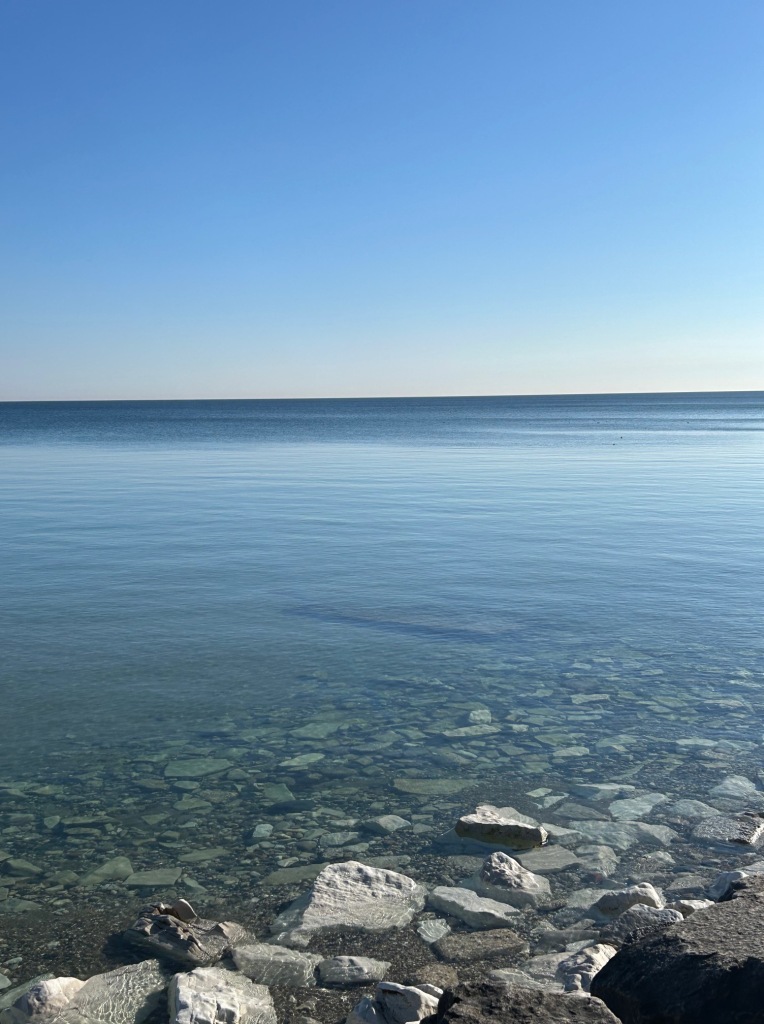
It seems like a lot of what you’re saying is that resilience can be built into a city’s very design – the urban (or suburban) character, but also the interplay between nature and the built environment.
I think the last piece is community as well. People contribute to the resiliency of an area, and we have very strong neighborhoods. Even individual blocks are really close knit with a mix of residents who have lived here for decades and new ones connecting and helping each other out. Throughout the summer, we have block parties, and the energy and attendance of that is really refreshing.
Of course there are the city design elements, the geography, the interplay between nature and that design, but also the people who inhabit the community and how they contribute to it.
We have some challenges though. One of the big issues we face here is maintaining and restoring our shorelines from erosion. They need a lot of maintenance, and our parks need maintenance as well – although both provide great opportunities to gather outside. So I’d consider this to be a resilient community, but we need to continue to improve it.
Shoreline erosion is something that we’re intimately familiar with in Southern California!
Where do you see the local government’s role in fostering community resilience? Is that even something that the local government should be involved in?
I think it is. Something I’ve learned through this whole process, and it can be challenging both in a campaign and personally, is that it’s really easy to have huge aspirations and we need to think strategically about the future, about how we develop as a community. But when you start to realize what the day-to-day roles or the week-to-week roles of the local government are, and what they’re actually focused on, it’s not always the things you think about. There is a wide variety of boards and municipal departments that handle different things. And I think people often think that when things get done, it’s the seven people on the board who are pulling those strings, and there’s generally a lot more to it than that. We are lucky to have a great municipal staff who make life here safe and enjoyable for residents.
A lot of what the local government gets down to doing is detail – it’s decision making, it’s pragmatism, it’s planning for the future in a strategic, concise way that is aligned to what our residents want. How do we take a year of our budget and make sure we’re investing for the future while controlling our tax burden? This type of balance is something I work on a lot in my day job and I hope to bring it here as well. I am a CPA and work with budgets and financial plans every day and I want to lend those skills to our local government
So it’s important to have both – the aspirations and the basics. Effective leaders take aspirations and make sure they are achievable and make a positive impact on those they serve.
So in summary, it often comes down to services. It’s the things you don’t notice – the sewers are working, the streets are shoveled, the parks are maintained. It’s all of those things. But of course, it’s critical to plan for the future too and I want to contribute to that discussion with an open-mind. What should we focus on knowing that we have limited resources, what will drive the most positive outcomes for our community? That’s part of where I think resilience fits in – we have various plans and initiatives that inform our vision and the goal is to implement them, but sometimes those plans are daunting, they’re long, they cover decades, and the world changes, so it’s also important to be nimble.
Let’s go back to some of your comments about community, which you mentioned was one of Whitefish Bay’s strengths.
In his book Bowling Alone, which you and I have talked about, Robert Putnam talks about community building almost as a paradox of being both in decline, but also more important than ever. Can you talk about the importance of community, not just at the local level, but the personal level? Then, do you have any tips for building community, not just within an urban environment, but also as part of a personal network?
Yes, I agree wholeheartedly with that. I know you and I have talked about it in the past – this is one of my favorite books!
When we think about what a society should look like, Putnam talks about a concept of social capital, which is basically the social and personal connections that make for a strong, productive and united community. It’s a really important idea, and for me it’s one of the biggest factors for increasing personal resilience – finding out how to increase and then effectively use your social capital. Because no matter what happens, if you have social capital, you have a community around you to help solve problems.
In terms of building community, this has always been important to me, but I think that really came into focus during the pandemic. We had so much technology at our fingertips, but what people seemed to want more than anything was to connect in a meaningful way. And honestly, I think that we lost something at that time, and maybe we had been losing it for a while and COVID accelerated it, but I am concerned about our capacity to connect with one another. I think technology may be a part of that, since it can allow people to retreat into their bubbles but it’s really nice to get out there and connect in person with the community. That is one of the things I love about working with our town Civic Foundation – it forces you to connect.
A little more about our Civic Foundation, it’s a private organization but it partners in many ways with our local government, and we put on a lot of the most loved community events around town. Many of these events have been going on in Whitefish Bay for decades and the Civic Foundation has been a great steward of them over time. They are attended by a huge portion of the community and residents of surrounding communities and they are always free to attend. I joined the Civic Foundation board coming out of COVID and it’s been a great way to build community and meet other residents. It’s really part of the fabric of our town. When I help with the Civic Foundation events, I feel like I am building social capital and contributing to a resilient community, and it is refreshing to be part of something positive and local.
Through this campaign, I have also enjoyed the nonpartisan approach of local politics, which is so different from partisan national politics. I think this really helps us focus on issues that matter to our residents.
Let’s talk about that difference. When people normally think about politics, they often think about things from a long, drawn out, partisan national level. What has been your experience thus far with politics on a local scale?
I think it’s quite different!
The office I’m running for is nonpartisan, so it really forces you to think about issues and not categorize yourself into a specific camp and that helps remove some of the clear delineations you’d have in a national race. I mean when you think about a national race, you have 90% of the voters accounted for regardless of who is running or what the issues are. That’s a big challenge because you end up fighting over a tiny sliver of voters on a huge range of issues.
On the local level, I’ve found it to be much more about networking, much more about visible things you can impact in a tangible way, and then also about your tone, your philosophy, and your resume. All of those matter in a different way than they would in a national election where there’s a partisan letter after your name that’s going to get you most of the way there. So that’s been nice.
It also forces you to talk to people and really connect with them in a nonpolitical way. I’ve been able to connect with people who have politics coming from all different angles. And sometimes their politics come up, sometimes they don’t, but it’s never the central area of focus and that’s really nice.
A lot of what you’ve mentioned has involved those most basic aspects of community building – talking one-on-one with people and networking. Can you talk more about the importance of that for strengthening the local community?
I think it’s the single most important thing you can do, honestly. What I’ve found is that when you talk to one person, at least when you’re running for something or working for a civic foundation, they’ll usually connect you with like five more people and from there you’ll keep connecting and encountering new perspectives. It’s important that you’re willing to be outgoing, you have to be willing to pick up the phone, and you have to be ready to have a lot of coffee!
I think it’s also really important to remind yourself to listen. I think everybody, myself included, loves to talk. But you learn a lot by listening and you start to figure out common themes. When you talk to one person, you get an individual opinion, but when you talk to 50 people, you start to see common themes emerge. That’s really what you’re working towards – bigger themes and once you’ve identified them you can focus on the details around how to make that happen.
Again, it’s refreshing to see that a lot of times those themes cut across political lines. What people are looking for often isn’t that complicated. And at the end of the day, people want to be part of a community that’s respectful and willing to interact and engage back with them.
So the major themes you hear while out and about center on respect and engagement?
I think those are two big themes, in addition to others that are more specific to our town. Civility is so important, and we’re lucky that we have it in this community. Like any community, we’ve had divisions in the past and I think we’ve maybe been a bit more divided recently than is typical, but overall, it’s an extremely collaborative community that really does prize civility.
Part of what pushed me to run in a concern about civility more broadly in our society. Our ability to be civil in our disagreements, well, it’s eroding at least as fast as any shoreline and that makes me afraid for the world that my kids will inherit. If we can’t have a coherent civil conversation where we might not agree, we are going to struggle to solve the many challenges we face. In Whitefish Bay, we are good at solving problems with civility, so I am going to do what I can to preserve that here in my town and improve it more broadly.
What made you want to get involved in local issues? What tips would you give to others looking to get involved in their own community?
Since moving here I’ve been pretty involved in the community, from helping with reviews of people’s tax assessments, which I did for about six years, to now getting more involved in our Civic Foundation and Library Foundation. It turns out groups like that really like you if you’re a CPA and have budget and financial strategy skills and I’ve always looked for ways to use my skills and background to give back to the town. I mean, I’m probably not going to be the most creative event planner, but I can definitely make sure we have the funds to pay for it!
At this point in our local government, I think my skills align with what we need, so that’s why I chose to run. It’s really for three reasons, which are themes of my campaign, community, consensus, and sound fiscal planning. There are a wide range of details underneath those themes, but they are the guiding principles for my campaign.
As far as tips for running for local office, if you’re interested, first make sure there are five or ten people who are well connected in the community that you can talk with about your ideas and campaign approach. Ask them, does your case make sense? Who can they connect you to? What tips do they have and how do they perceive you? It’s always interesting to learn more about how you are perceived compared to how you perceive yourself and I think good leaders adapt and grow based on this feedback. These first connections are incredibly valuable in the early part of a campaign.
When I think about a local community, I like to think about how it’s made up of building blocks of individuals, who make up individual families, who come together and form the culture of a town. So I want to talk about your own building block – your own family. Are you taking things you’ve learned from the community back to your own family? Are you taking lessons from your family out to the broader community?
Yeah, I think it goes both ways. When I think about my own family, my two kids and my wife, they’ve done so much to instill into me the importance of listening, kindness, stability – I definitely learn much more in my house that I take outside.
And then even though the kids are a little young to participate in the campaign, they like to be part of things when they can. They take pictures, they ask why there are signs up around town with my name on it, that sort of thing. I hope to make them proud! They may not know it now, but someday when they look back, hopefully they’ll think this was good no matter what happens.
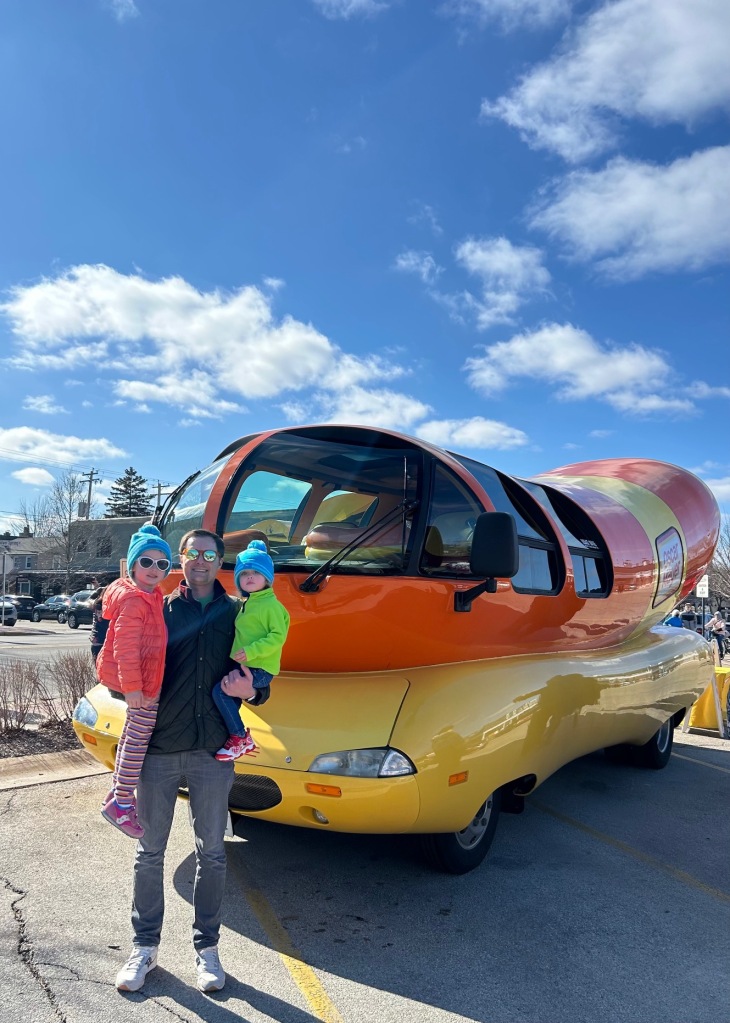
What are the best ways for someone to learn more about you or contact you?
Our election is coming up on April 2nd, you can check out my website, and you can also use one of the various contact forms on that site to connect with me via email. I’m not taking donations for this campaign, but if someone wants to contact me and learn more, whether they live in Wisconsin, California, or anywhere really, then feel free, I’d be happy to talk with them.
Is there anything else you’d like to talk about or highlight before we go?
The first thing is that I’d really just like to encourage people that if they’re on the fence about running for a local office or getting involved in your local community, I’d say you should go for it! It’s a really great personal and professional experience. It will be uncomfortable at times and it will challenge you in ways you wouldn’t expect, but it will also connect you to really interesting people you wouldn’t have met any other way. And you never know where those connections and learning experiences will take you. Whether you win or lose, you’ll have a good experience, and you’ll be glad you did.
The other thing I want to highlight is on that theme of civility that we talked about. I think the more you get out and talk to people, the more people will surprise you. They’re going to be more reasonable than you expect, going to have more complex views than you’d think. It’s so easy, at a national level, to classify people based on their political leanings, but underneath it, there is so much complexity that those parties gloss over. And that’s something that’s really harming our ability to be civil at a local level.
There’s a scene in the show Ted Lasso where Lasso is playing darts and references a quote, “Be curious, not judgmental.” If you are curious about people, you are going to learn something – and I think that’s a pretty good takeaway for anything you want to do.
Want to go more in depth? Learn more here:
Sam Dettmann’s Village Trustee Website
Sam Dettmann’s Village Trustee Instagram
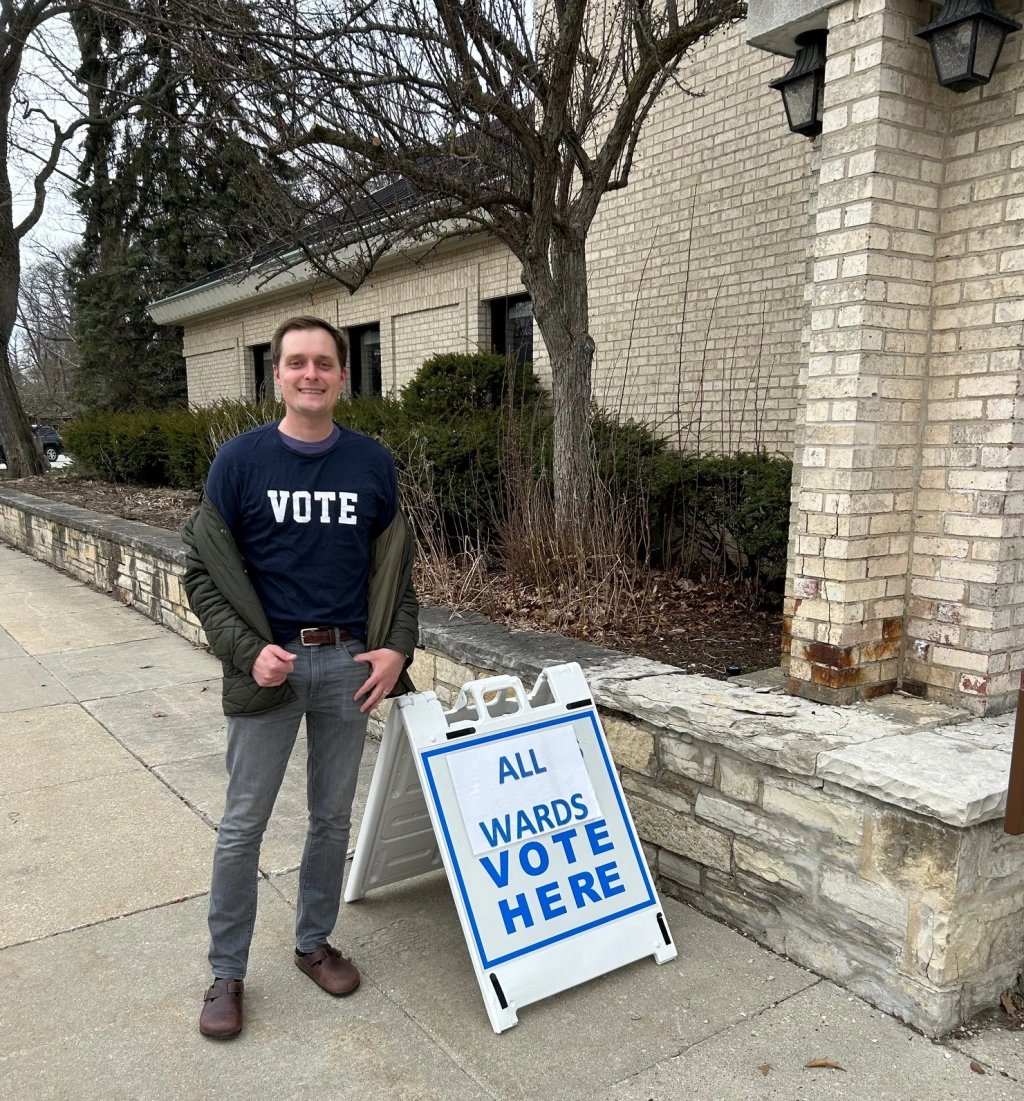

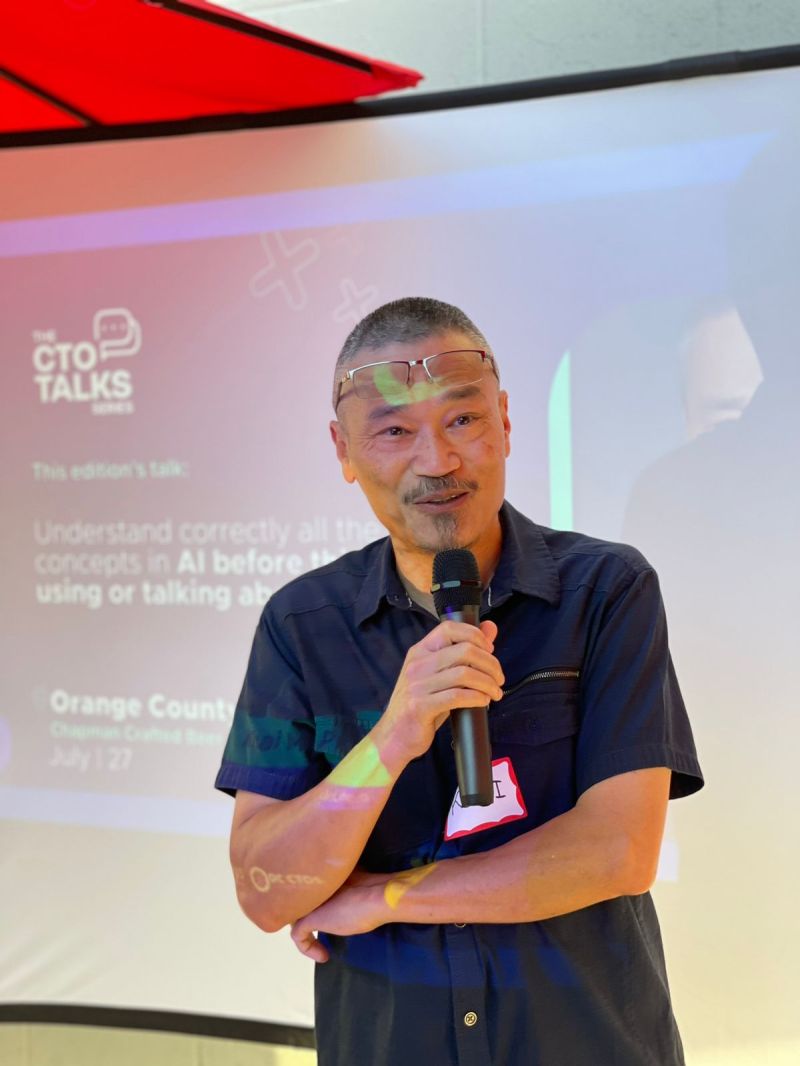
Leave a comment